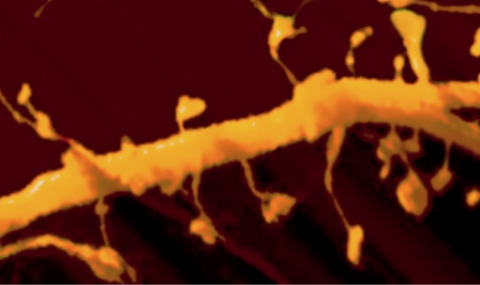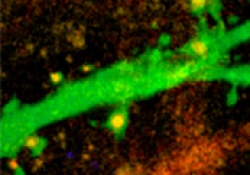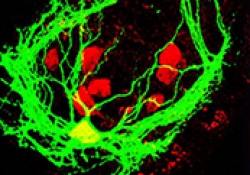Our research interests are focused on neuronal basis of long term memory in the brain. Of particular interest are conditions that are associated with deterioration of memory systems in the brain, such as those occurring in Alzheimer's patients and mentally retarded children. In our studies, we use intact, transgenic mice, harboring specific genes that are modified to make them similar to the human disease conditions.
We study behavior as well as the electrical activity of their brains. We use brain slices taken from the hippocampus, a region of the brain where memories are assumed to be stored, and we study the electrophysiological manifestation of memory expressed as long term potentiation of reactivity to afferent stimulation (LTP).
The main thrust of our work is conducted with tissue cultured neurons, taken out of newborn brains of rats or mice and maintained in artificial conditions for several weeks, to allow us to zoom in on the synaptic regions of the nerve cell where modifications are assumed to take place during learning.
Using time lapse photography of living cultured neurons in a confocal laser scanning microscope, we find that the dendritic spines, small protrusions on dendrites of central neurons where synapses are made, undergo long term morphological changes that are dependent on activation of several molecular cascades in the activated neuron.
Using flash photolysis of caged molecules we are able to cause local release of minute quantities of key molecules involved in neuronal plasticity, and study their impact on the neuron. Combined with simultaneous electrophysiological recording of activity of cultured neurons and the modification of individual molecules in the neuron with transfection methodology, we are equipped to pursue the study of cellular basis of plasticity.





